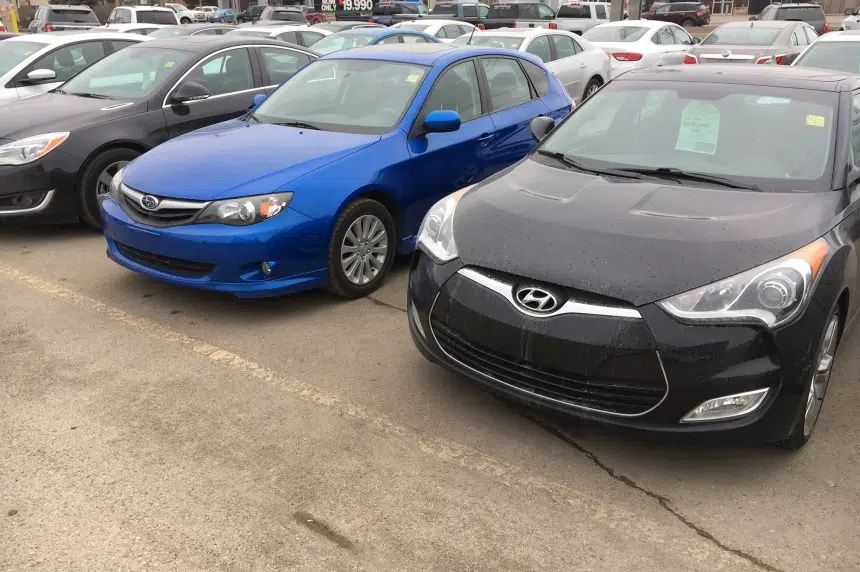The COVID-19 pandemic has already caused used vehicle prices to soar and now the auto workers’ strike in the United States is threatening to make used car prices go up again.
The strike has hurt the production of cars made by Ford, General Motors and Stellantis as those companies and their union attempt to find a new agreement to make employees and employers happy on both sides.
While the strike in Canada was resolved last week, the strike in the U.S. could have impacts that are far-reaching, including here in Saskatchewan.
Randy Daou, who owns the used car dealership Daou Auto in Saskatoon, said he’s watching the situation closely.
“If they do shut down the plants again, it will be just like the situation when they shut down for COVID. That made it hard for us, a used car industry trying to find inventory, and that’s what boosted the prices,” Daou said.
“Right now with the boosted prices we’ve had, we’re up to a 30 per cent increase (for some cars). I don’t think the economy can afford another increase in used cars. All it’s going to do is make it hard for us to find inventory,” he added.
Daou mentioned it’s not them trying to pull in more profit, but that’s just the state of the current used vehicle economy.
“We’re selling cars that are two to three years old at the same price of a new car. That’s not us at Daou Auto (bringing up the price), that’s just the way the economy is,” Daou stated. “Certain cars are selling for more money than they were new and someone who bought a car pre-2020 is getting more money than they paid for them.”
Daou mentioned a lot of people now are choosing not to trade their vehicles in because of the price increase over the last three years. Some vehicle owners are deciding to keep their cars and fix them up themselves if they can’t find a similar model because of supply chain issues.
Harman Singh, who owns Roadway Auto & Sport in Saskatoon and Regina, is also concerned about the strike.
“Inventory has been a challenge since COVID happened. We would have about 200 units between the two dealerships and we’re at 120 to 130 right now,” Singh said. “More people are buying in panic right now (at the auctions). The cars are (going) for more money than they should.
“We’re worried if this (strike) continues for a long time, eventually it will dry up the new supply and if the new supply is done, then people aren’t selling used cars. If there’s no used cars, we aren’t getting inventory,” he added.
The Saskatchewan Automobile Dealer’s Association declined to comment for this story, even though these dealerships say the market is challenging and tough to navigate.
For now, the impacts of the strike haven’t been felt, but both men are waiting to see what might happen if the strike continues on.
A previous version of this story misspelled Randy Daou’s last name. It also did not include details about the industry association declining to comment.











